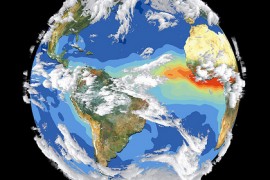Rona Fairhead, who David Cameron has parachuted in as new chairman of the BBC, is being grilled about her approach to the role by the Commons Culture and Sport Committee on Tuesday – and already questions of conflict of interest are being asked.
A former chief executive of the Financial Times group, she still owns a tranche of shares in parent company Pearson worth around £4.5m – and the BBC commercial arm BBC Worldwide has a deal with Pearson which involves the Corporation promoting some of its educational products. No doubt the BBC’s spin doctors will come up with reasons why that’s perfectly OK.
Actually, her appointment may be smoke and mirrors and almost an irrelevance. The real power in the Corporation is vested in the Executive Management Board. It takes the day-to-day decisions about how its run.
The Trustees (of whom Fairhead will be chairman) is supposed to be the BBC watchdog, but since its inception in 2007 has in reality been pretty ineffective and packed with left-leaning climate change alarmists such as Alison Hastings and Diana Coyle.
Under former chairman Lord Patten, they pretty much sat on their hands while former Director General Mark Thompson presided over a bean feast of eye-wateringly massive pay-outs to departing executives, embarked on lunatic new technology projects that cost licence-fee payers more than £100m, and also spectacularly failed to act as senior Corporation editorial managers effectively suppressed the Savile story.
The executive management board is made up of a core senior BBC executives, such as former director of news Helen Boaden, who rather than being sacked, was moved sideways to Managing Director radio after huge question marks were raised about her conduct in the Savile cover-up.
But the board also has a range of outside non-executive and it is here that Director General Tony Hall has been making a raft of appointments that show how the BBC is likely to conduct itself in the crucial build-up to 2017 Charter renewal, and who are likely to be far more important in the shaping of BBC conduct.
Who are these people? A mixed bag of fiercely independent minds? Well no.
Step forward Sir Nicholas Hytner, Alice Perkins, Dame Fiona Reynolds, Sir Howard Stringer, and Simon Burke.
All, it is true, have impressive-sounding career paths. Hytner is the former director of the National Theatre; Stringer a former president of CBS, the US terrestrial broadcaster, and Sony, the Japanese conglomerate; Perkins is Chairman of the Post Office; Reynolds is a former Director General of the National Trust; and Burke, a retailer, has a career that started with Richard Branson’s Virgin and he is now a director of the Co-op Food division.
But scratch the surface, and familiar alarm bells start clanging immediately.
Alice Perkins hasn’t adopted the name of her husband – he’s the former foreign secretary Jack Straw. I’ll leave you to draw your own conclusions about that in terms of her outlook.
Stringer has a very public obsession pursuing climate change alarmism. Under his leadership, Sony got into bed very firmly with all the usual eco militants in leading the charge towards a 50% reduction in carbon dioxide emissions, and he is a platform speaker at climate alarmist events such as this. This adulatory piece in the BBC’s house journal The Guardian says it all.
Reynolds , now the master of Emmanuel College , can be seen and heard here in full cry telling the students of St Andrew’s University that we are all going to fry and die unless we mend our wicked ways and all become as madly green as she is. And under Reynolds stewardship, the National Trust turned from being a body simply conserving our heritage to one screeching that climate change is a major national issue that affects us all.
Hytner is very careful about giving interviews about his political outlook. But my guess from a trawl of his background is that he was never a fan of Margaret Thatcher and he stresses the need for the arts to reflect ‘cultural diversity’ – often the code for the multicultural agenda.
Burke is also a bit of an unknown quantity – his career path too colourless to attract much attention – but he cut his teeth as a key lieutenant of the right-on green warrior Richard Branson, whose enlightened philosophy is to tell climate ‘deniers’ to get out of the way.
The problem facing the BBC as Fairhead’s appointment moves towards confirmation is not particularly who she is, or what she represents, but that the Corporation desperately needs input from genuinely independent radical-thinking figures who can shake up its slavish adherence to left-leaning ideology and outlook.
All the signs are that it is moving in the opposite direction. Tony Hall has surrounded himself with a coterie that shares his own worldview – and in turn, that’s exactly the same as that of the Trustees.
On Tuesday, the MPs on the Culture Committee will focus on Fairhead, but she’s destined to be an empty, toothless figurehead. The real power lies elsewhere.










